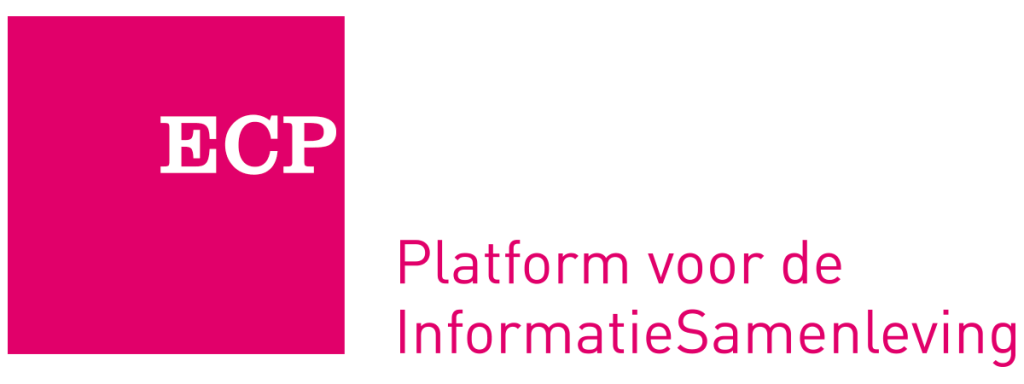‘Research & Development should be turned around into Development & Research.’
Ingrid van Engelshoven, Deputy Mayor of The Hague and co-host of the Summit, welcomed 200 practitioners and researchers from European universities, large companies and SMEs to The Hague. ‘We are well-known as the city of peace and justice,’ she said. ‘Our business district is also the home of The Hague Security Delta, the largest security cluster of Europe. Our city developed a Smart The Hague Program where we look at ways to use big data in for instance traffic management or crowd control. However, digitisation does not only bring options, it also exposes us to risks such as hacking. We need to arm ourselves to this, and focus on responsible use of data for the public good.’
Social values
The panel discussion ‒ moderated by Arie van Bellen of the Foundation for the Information Society ‒ started with each panel member explaining his or her most important topic that needs to be addressed in order to achieve societal impact with big data. Jeroen van den Hoven (Technical University Delft) opened the discussion: ‘There is a huge gap between technology and values such as privacy, transparency, accountability and fairness. These values should be regarded as non-functional requirements, they should be built into the system and it must be proven that the system respects them.’ Anna Donovan of Trilateral Research & Consulting agreed with him: ‘Social values should be embedded in the technology, the infrastructure, the applications and the analytics. Industry and practitioners are vital stakeholders to adopt those values and embed them.’
Expertise
Linda Kool (Rathenau Instituut) observed that the expectations of big data seem to have grown to mythical proportions nowadays. ‘It is time for a more realistic view.’ Ulrich Mans (Leiden University) advocated the use of big data in peace and justice, for example to help stop the war in Syria. ‘However, the problem is that almost none of the organisations in this field invest in expertise on using big data. They will need to cross that hurdle soon and we should focus on helping them instead of doing research in the classic sense. The sequence in Research & Development should be turned around into Development & Research.’
Living lab approach
One of the solutions to bring the data driven society a step further is involving all the stakeholders. ‘Data-driven innovations cannot be created by companies alone,’ said Arie van Bellen. A promising example of stakeholder involvement is the living lab approach, where citizens and companies experiment with applications in a real life setting and discuss their concerns, explained Linda Kool. Rob Nijman (IBM) elaborated on issues related to experiments with big data: ‘One issue is that we are talking in user groups about technology that hasn’t been used yet. We need to take each other by the hand and clarify developments. Another issue is how we can experiment with big data in parallel with our current legal frameworks and regulations. This is a big challenge.’
Improve trust
One of the attendees mentioned that when discussing the impact of big data on society, accountability and transparency are crucial. ‘It is a way to improve trust in the digital economy from a citizens’ viewpoint and we need tools for that,’ she said. Jeroen van den Hoven remarked that there is a difference between trust and confidence. ‘Do I trust my plumber to fix the kitchen sink or do I trust him with the silver in my kitchen drawer? The first is about confidence, the second about trust in a moral
sense. In the big data environment, we need to provide evidence that our values are implemented in the second sense.’ Ulrich Mans reminded the audience that the most prominent data in peace and justice ‒ cell phone data, cellular data and social media data ‒ are held by private companies who are reluctant to hand them over. ‘They are distrustful: what will the data be used for? Will they be used again in the future? Before you can achieve any impact with big data, all stakeholders will need to have trust.’
Big data is money
Mauro Barbieri (Philips Research) remarked that even when technologies are available and standards defined and implemented, it is critical that citizens understand how the data are being used and managed. ‘The general public suffers from data illiteracy, lack of knowledge about data or statistics. If knowledge is power and big data is money, then ignorance is fear and fear feeds mistrust.’ This lead to a plea from Anna Donovan for a mass digital awareness campaign: ‘We already have safety awareness campaigns, why don’t we have campaigns for raising the digital awareness of our citizens? We are the digital society!’
Transparency
Despite all this, Linda Kool was hopeful about the future. ‘There is a growing awareness in society that privacy needs to be improved; and we have the General Data Protection Regulation coming up.’ To this she added that to improve trust, transparency is not only needed on data but also on the algorithms that are used. She mentioned the IBM research project WatsonPaths, which helps physicians and medical students to make more informed and accurate decisions faster. ‘WatsonPaths shows which sources it reviewed to come up with a diagnosis and which paths it explored. The software also tells you how sure it is about the diagnosis and what it doesn’t know. It is a fine example of transparency.’
The Small Big Data Value Summit, an Associated Event of the Dutch EU Presidency, is a Big Data Value Association (www.bdva.eu) event, organised by TNO (www.tno.nl), endorsed by the dutch digital delta (www.dutchdigitaldelta.nl) and hosted by the City of The Hague.
